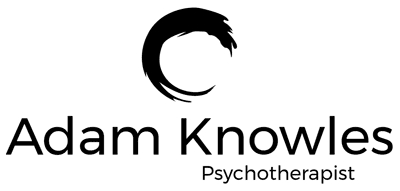Ethics lecture: psychedelics at the University of Exeter
Today, I recorded a contribution to the PG Cert in “Psychedelics, philosophy and culture” (online) at the University of Exeter, for module 2, week 6, “Introduction to Ethics”. The course is “the UK's first academically certified programme in psychedelics studies”.
The format for my contribution was a half hour video conversation with the co-Programme Director Dr Peter Sjöstedt-Hughes. That video will be available only as part of the course, so I’ve summarised a few elements here, to share.
Peter’s preceding lecture set out the three pillars of Western philosophy (since Aristotle) as Metaphysics, Epistemology and Axiology (Ethics and Aesthetics). Much of our discussion delineated those divisions. Within ethics, Peter proposes an “Ethics Map” of various positions. As an existential therapist, I would locate myself in the “meta ethics”, descriptive (not prescriptive) and “virtue” rather than normative ethics. That said, as a therapist, my practice of ethics is less “me and grand philosophical ideas and traditions”, and more “me and another person”, so I was keen to emphasise the basic anarchy of that intersubjective and relational position.
University of Exeter in real life
The focus of the conversation was “ethics in practice”, in terms of my lived experience of ethical dilemmas and questions that arise in my client work. I explained that psychotherapy is a contested term, meaning different things to different people. The existential therapy that I offer can become a collaborative philosophical enquiry, whereas other psychotherapies can be more directive, medicalised or manualised. I talked about ethics as the starting point for existential therapy, as I practice it, that psychotherapy is fundamentally a moral endeavour of “working out right action (for this person in these circumstances)”, not a medical task concerned with “mental illness” and “mental health”. Ethics in psychotherapy is not, as I’ve seen it framed elsewhere, a tick box of universally agreed practices for legal compliance.
“A man without ethics is a wild beast loosed upon this world.”
I described some of the situations that have arisen in my client work, using anonymous case examples for this teaching purpose. One is the metaphysical question of what “being in hell” can mean for someone, within an ayahuasca context. Related questions arise in relation to what might medically be termed “psychosis” or a “psychotic break”, for instance a client insisting they are Jesus Christ or an FBI agent. My response is generally “how do you know?”, being a question of epistemology (how we know things) that directly links to one of metaphysics (what is real). There’s an intersection of ethics with religion, too. Does the Christian notion of “sin” relate to the Buddhist notion of “unskilled action”? Is what we consider “right” also what we consider “true” and is that a function of what’s “useful”? Or as Nietzsche might suggest, is there something “beyond good and evil”, and is he correct that what is “right” is, seen clearly, a simple function of power, “The golden rule that they who have the gold make the rules”?
“Ethics is in origin the art of recommending to others the sacrifices required for cooperation with oneself.”
Related topics from my client work might include the ethics of responsibility when it comes to addiction. For example, the notion of being “chemically addicted” depends, I suggest, on Cartesian dualism, as if mind and body are separate. Elsewhere, as I’ve discussed with Jules Evans, there is the question of “the reality of memory” (cf “memory wars”), as in, what is the ontological status of “the past”, whether it is even a coherent question to ask “is this a real memory?”. And then there’s suicide, which brings up a question of “telos” (ends, purpose). A materialist may think all suicide must be “prevented” since, according to that position, a priori, being alive is better than being dead. Others take a different view, of course, in terms of Christian afterlife, Buddhist re-incarnation and so on. There is no agreement on what an appropriate “telos” is, and whether there is an overall telos that the Universe (as conscious, question mark?) is working towards: a “cosmic telos”. As with therapy, my hope is to arrive, if not at answers, then at better informed questions, structured in a useful way.
Tangled threads. Anyone got a philosophical razor?


